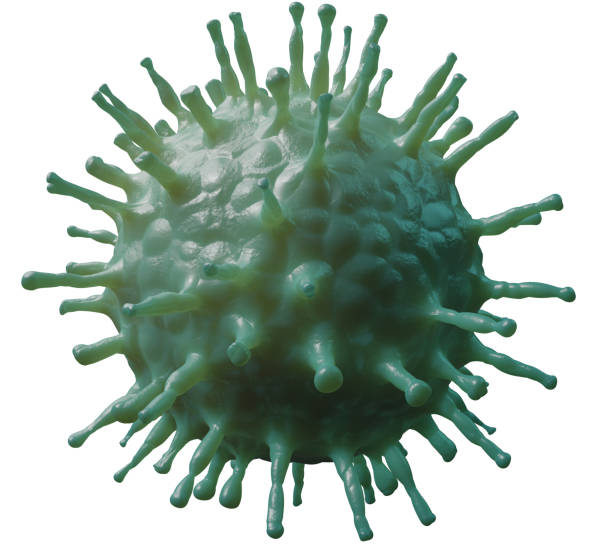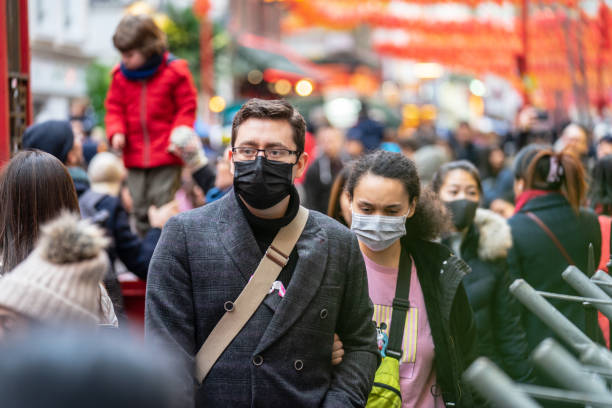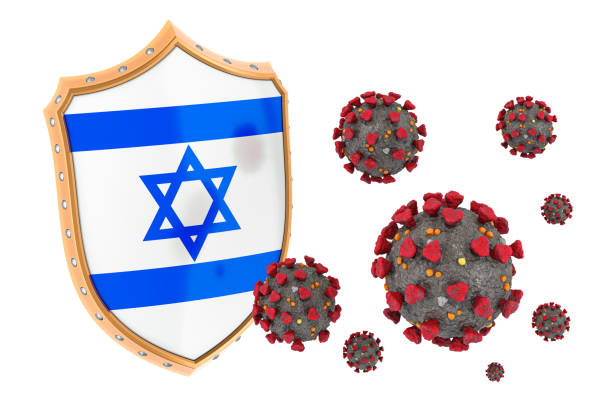Title: Understanding Coronavirus 19: A Comprehensive Overview
Introduction
Coronavirus 19, commonly referred to as COVID-19, emerged as a global health crisis in late 2019, transforming societies, economies, and healthcare systems around the world. This novel virus, belonging to the family of coronaviruses, specifically the severe acute respiratory syndrome coronavirus 2 (SARS-CoV-2), has had profound impacts on daily life, raising questions about its origins, transmission, symptoms, preventive measures, and the global response to the pandemic.
Origins and Spread
COVID-19 is thought to have originated in a seafood market in Wuhan, China, where the initial cases were reported. The virus is primarily transmitted from person to person through respiratory droplets, leading to a rapid global spread. Asymptomatic individuals can also unknowingly transmit the virus, contributing to its stealthy transmission.
Symptoms and Clinical Presentation
The symptoms of COVID-19 can vary widely, ranging from mild to severe, and may include fever, cough, shortness of breath, fatigue, loss of taste or smell, muscle aches, and sore throat. Severe cases can lead to pneumonia, acute respiratory distress syndrome (ARDS), organ failure, and, in some instances, death. Certain individuals, such as the elderly and those with preexisting medical conditions, are at a higher risk of developing severe illness.
Preventive Measures
To curb the spread of the virus, various preventive measures have been recommended by health organizations and governments. These include regular handwashing, wearing face masks, practicing physical distancing, and staying home when feeling unwell. Lockdowns, travel restrictions, and quarantine protocols have been implemented in different regions to mitigate the virus's impact.
Diagnosis and Testing
Diagnostic testing plays a crucial role in identifying and isolating cases to prevent further transmission. The most common testing methods involve detecting the virus's genetic material through polymerase chain reaction (PCR) tests and identifying antibodies produced in response to the virus. Rapid antigen tests have also gained prominence due to their quicker results.
Global Response
The global response to COVID-19 has been multifaceted, involving collaboration between governments, healthcare organizations, and research institutions. Efforts have been focused on vaccine development, treatment options, and public health strategies. The pandemic prompted an unprecedented race to develop effective vaccines, resulting in the emergency authorization of several vaccines for public use.
Vaccination Campaigns
Mass vaccination campaigns have been launched worldwide to achieve widespread immunity against COVID-19. Vaccines like Pfizer-BioNTech, Moderna, AstraZeneca, and Johnson & Johnson have played a pivotal role in curbing the virus's impact. However, challenges such as vaccine hesitancy, distribution inequities, and emerging variants have posed hurdles to achieving global vaccination goals.
Impact on Society
The pandemic has brought about significant societal changes. Remote work and online education became the norm in many places, accelerating digital transformation. The travel, hospitality, and entertainment industries faced severe setbacks due to lockdowns and restrictions. Mental health concerns rose as individuals grappled with isolation, uncertainty, and grief. The pandemic highlighted existing social disparities, with marginalized communities disproportionately affected.
Emergence of Variants
SARS-CoV-2 has undergone genetic mutations, leading to the emergence of new variants. Some variants have shown increased transmissibility, altered disease severity, and potential resistance to immunity conferred by previous infection or vaccination. Monitoring and studying these variants remain essential to adapt public health strategies and vaccine formulations accordingly.
Looking Ahead
COVID-19 has reshaped the global landscape, leaving lasting impacts on public health, economies, and societies. The pandemic underscored the importance of international collaboration, early detection, and preparedness for future health crises. While vaccines offer hope, continued vigilance, research, and adherence to public health guidelines will be crucial in navigating the evolving landscape of COVID-19.
Conclusion
Coronavirus 19, or COVID-19, has brought the world to a standstill, challenging healthcare systems, economies, and daily life. Its rapid spread, diverse clinical presentations, and profound societal impacts have prompted a comprehensive global response. Through scientific advancements, vaccination efforts, and collective cooperation, humanity strives to overcome the challenges posed by this novel virus and emerge stronger, more prepared, and united in the face of future uncertainties.
Introduction
Coronavirus 19, commonly referred to as COVID-19, emerged as a global health crisis in late 2019, transforming societies, economies, and healthcare systems around the world. This novel virus, belonging to the family of coronaviruses, specifically the severe acute respiratory syndrome coronavirus 2 (SARS-CoV-2), has had profound impacts on daily life, raising questions about its origins, transmission, symptoms, preventive measures, and the global response to the pandemic.
Origins and Spread
COVID-19 is thought to have originated in a seafood market in Wuhan, China, where the initial cases were reported. The virus is primarily transmitted from person to person through respiratory droplets, leading to a rapid global spread. Asymptomatic individuals can also unknowingly transmit the virus, contributing to its stealthy transmission.
Symptoms and Clinical Presentation
The symptoms of COVID-19 can vary widely, ranging from mild to severe, and may include fever, cough, shortness of breath, fatigue, loss of taste or smell, muscle aches, and sore throat. Severe cases can lead to pneumonia, acute respiratory distress syndrome (ARDS), organ failure, and, in some instances, death. Certain individuals, such as the elderly and those with preexisting medical conditions, are at a higher risk of developing severe illness.
Preventive Measures
To curb the spread of the virus, various preventive measures have been recommended by health organizations and governments. These include regular handwashing, wearing face masks, practicing physical distancing, and staying home when feeling unwell. Lockdowns, travel restrictions, and quarantine protocols have been implemented in different regions to mitigate the virus's impact.
Diagnosis and Testing
Diagnostic testing plays a crucial role in identifying and isolating cases to prevent further transmission. The most common testing methods involve detecting the virus's genetic material through polymerase chain reaction (PCR) tests and identifying antibodies produced in response to the virus. Rapid antigen tests have also gained prominence due to their quicker results.
Global Response
The global response to COVID-19 has been multifaceted, involving collaboration between governments, healthcare organizations, and research institutions. Efforts have been focused on vaccine development, treatment options, and public health strategies. The pandemic prompted an unprecedented race to develop effective vaccines, resulting in the emergency authorization of several vaccines for public use.
Vaccination Campaigns
Mass vaccination campaigns have been launched worldwide to achieve widespread immunity against COVID-19. Vaccines like Pfizer-BioNTech, Moderna, AstraZeneca, and Johnson & Johnson have played a pivotal role in curbing the virus's impact. However, challenges such as vaccine hesitancy, distribution inequities, and emerging variants have posed hurdles to achieving global vaccination goals.
Impact on Society
The pandemic has brought about significant societal changes. Remote work and online education became the norm in many places, accelerating digital transformation. The travel, hospitality, and entertainment industries faced severe setbacks due to lockdowns and restrictions. Mental health concerns rose as individuals grappled with isolation, uncertainty, and grief. The pandemic highlighted existing social disparities, with marginalized communities disproportionately affected.
Emergence of Variants
SARS-CoV-2 has undergone genetic mutations, leading to the emergence of new variants. Some variants have shown increased transmissibility, altered disease severity, and potential resistance to immunity conferred by previous infection or vaccination. Monitoring and studying these variants remain essential to adapt public health strategies and vaccine formulations accordingly.
Looking Ahead
COVID-19 has reshaped the global landscape, leaving lasting impacts on public health, economies, and societies. The pandemic underscored the importance of international collaboration, early detection, and preparedness for future health crises. While vaccines offer hope, continued vigilance, research, and adherence to public health guidelines will be crucial in navigating the evolving landscape of COVID-19.
Conclusion
Coronavirus 19, or COVID-19, has brought the world to a standstill, challenging healthcare systems, economies, and daily life. Its rapid spread, diverse clinical presentations, and profound societal impacts have prompted a comprehensive global response. Through scientific advancements, vaccination efforts, and collective cooperation, humanity strives to overcome the challenges posed by this novel virus and emerge stronger, more prepared, and united in the face of future uncertainties.




